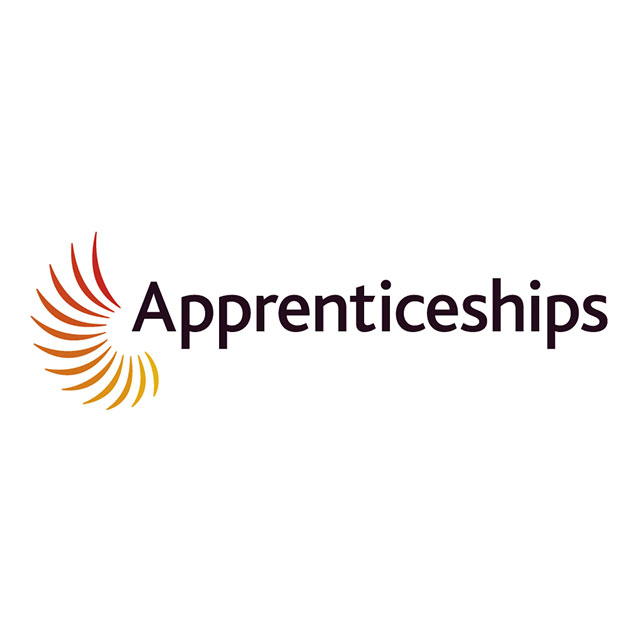DO NOT DELETE OR EDIT THIS ROW OR ITS CONTENTS

All organisations, private and public sector use information technology and networks to communicate and exchange information, but what happens when these systems go down? Every day organisations face global Cyber threats which can cause considerable disruption. When a Cyber-attack occurs, an organisation can be vulnerable to data breaches and loss of profits both of which could impact their reputation. In the public sector, health service downtime can result in cancelled operations or medical appointments due to equipment not working correctly, which can directly impact a patient’s health. Working in Cyber security can be both exciting and rewarding learning the latest techniques to stay one step ahead of the hackers. This course will give you the skills needed to identify and prevent Cyber threats – you will have the opportunity to attempt ethical hacking in our off-grid sandbox lab and complete vulnerability testing. You will also be monitoring threats in real time and finding innovative ways to intercept them before they cause significant problems. You will be investigating DDOS and ransomware attacks and how to mitigate these. This is an exciting time to join the Cyber and IT security industry and this course will prepare you to enter the industry.
What will I study in Digital Support Services (Cyber Security) T-level?
The core part of the qualification will give you a baseline understanding of the industry. It covers a range of areas, giving you a vital underpinning knowledge and understanding of concepts and the skills that you’ll need in this sector.
The core elements of digital will cover a host of themes including the following:
- The Business Context
- Culture
- Digital Analysis
- Digital Environments
- Diversity and inclusion
- Learning
- Legislation
- Planning
- Security
- Testing
- Tools
In addition, learners will complete an employer set project.
The specialism is the second part of the course which covers content which aligns with industry specific skills or directly relevant content for your chosen occupation.
The third part of the course is an Industry Placement which gives you valuable work experience and also has a work related project attached to it. In addition, there are a host of other elements such as preparation for work, T-level specific tutoring and career advice and guidance to make a relevant and substantial study programme.
The specialist elements of digital will be covered through developing your skills:
- Identifying cyber threats and how to mitigate these
- Reviewing different types of attacks including social engineering, phishing, spear phishing, vishing, smishing, shoulder surfing and dumpster diving.
- Denial of service (DoS)/ Distributed Denial of Service (DDoS)
- Malware, e.g, virus, adware, ransomware, trojan, botnet, spyware
In year 2 you will complete an occupational project and will be assessed on how you can mitigate Cyber attacks. This will include developing skills with firewalls, vulnerability scanning, anti-malware, device hardening and server configuration.
Entry Requirements
At least five GCSEs at Grade 4 or above all from the basket subjects including Maths and English Language.
What is the T-level industry placement?
The Industry Placement
Your industry placement gives you a great opportunity to put your learning into practice and develop your technical skills and knowledge for the industry your placement is in. It will help you to progress once you have finished your T-level, whether that is directly into employment, an apprenticeship, or more education.
This is a compulsory part of your T-level, and you must complete it to get your T-level certificate. You will spend a minimum of 315 hours on your placement, or 750 hours for Childcare and Education T-level students.
How will I learn?
A typical week could see you learning how to prevent cyber attacks and put in place protection measures, having a lecture on cyberattacks or working in a team to test network security and vulnerabilities.
How will I be assessed?
The core is assessed with two exams which are externally marked. Both are two hours long. Learners are also required to complete an employer set project task as part of the core.
All learners will complete a 45-day industry placement as part of their course. Although we do provide some support with helping to find a placement we expect learners to be actively looking and making their own applications. They are also required to formally apply and attend an interview. The placement can be completed with one or two employers. It can be a day release or over a number of weeks as a block placement. Learners must pass the industry placement. Learners will complete their placement in years 1 and 2.
We also expect that our students have the required professional standards in the workplace. Dressing smartly and arriving on time are key to making a good impression. Learners will need to be able to communicate to clients effectivity and be productive in the workplace. There will be support to develop these professional standards within the course.
The Occupational Specialism Assessment (OSA) will be assessed by three assignments which are completed under control assessment conditions
Any trips?
Learners will attend day trips to a range of IT organisations.
Are there any costs involved?
No additional equipment is needed however a computer or laptop at home would be useful.
FAQs
Career opportunities
- Network and Cyber Security Specialist
- Digital support specialist
- Digital applications specialist
- Digital service specialist
- Infrastructure Specialist
- IT solutions specialist
- Digital Systems operator
- Technical Support Specialist
The work placement will be over 45 days. You will have the opportunity to work with one or two employers within the IT industry. Your work placement could be a day release or a number of weeks. We work with many organisations within the IT industry and will help you find a suitable placement. This is a fantastic opportunity to gain skills using the latest technology.
It’s really important you do your research and have an interest in a career in the digital sector. Whilst we appreciate not everyone at a young age knows exactly what they want to do next we would not recommend these courses if you have no idea what you want to do. These courses have been designed to prepare you to work in a specific sector of the digital industry.
Awarding Body
NCFE
Available As
[168 UCAS pts. available]

Add to Application
What can I do after I have taken this course?
Available As
[168 UCAS pts. available]

Add to Application

DO NOT DELETE OR EDIT THIS ROW OR ITS CONTENTS














